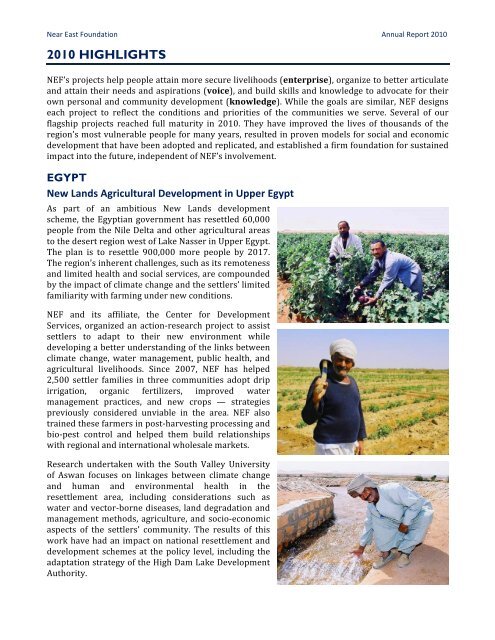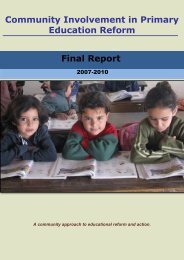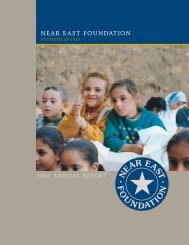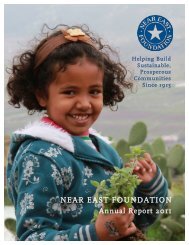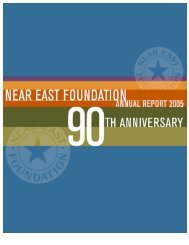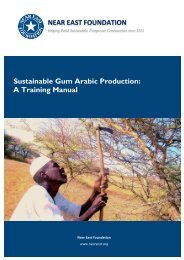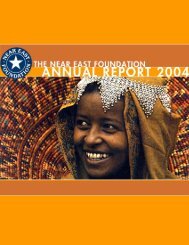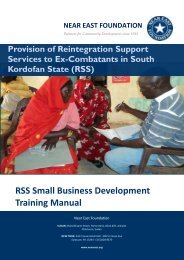NEF 2010 Annual Report - Near East Foundation
NEF 2010 Annual Report - Near East Foundation
NEF 2010 Annual Report - Near East Foundation
Create successful ePaper yourself
Turn your PDF publications into a flip-book with our unique Google optimized e-Paper software.
<strong>Near</strong> <strong>East</strong> <strong>Foundation</strong> <br />
<strong>Annual</strong> <strong>Report</strong> <strong>2010</strong> <br />
<strong>2010</strong> HIGHLIGHTS<br />
<strong>NEF</strong>’s projects help people attain more secure livelihoods (enterprise), organize to better articulate <br />
and attain their needs and aspirations (voice), and build skills and knowledge to advocate for their <br />
own personal and community development (knowledge). While the goals are similar, <strong>NEF</strong> designs <br />
each project to reflect the conditions and priorities of the communities we serve. Several of our <br />
flagship projects reached full maturity in <strong>2010</strong>. They have improved the lives of thousands of the <br />
region’s most vulnerable people for many years, resulted in proven models for social and economic <br />
development that have been adopted and replicated, and established a firm foundation for sustained <br />
impact into the future, independent of <strong>NEF</strong>’s involvement. <br />
EGYPT <br />
New Lands Agricultural Development in Upper Egypt <br />
As part of an ambitious New Lands development <br />
scheme, the Egyptian government has resettled 60,000 <br />
people from the Nile Delta and other agricultural areas <br />
to the desert region west of Lake Nasser in Upper Egypt. <br />
The plan is to resettle 900,000 more people by 2017. <br />
The region’s inherent challenges, such as its remoteness <br />
and limited health and social services, are compounded <br />
by the impact of climate change and the settlers’ limited <br />
familiarity with farming under new conditions. <br />
<strong>NEF</strong> and its affiliate, the Center for Development <br />
Services, organized an action-‐research project to assist <br />
settlers to adapt to their new environment while <br />
developing a better understanding of the links between <br />
climate change, water management, public health, and <br />
agricultural livelihoods. Since 2007, <strong>NEF</strong> has helped <br />
2,500 settler families in three communities adopt drip <br />
irrigation, organic fertilizers, improved water <br />
management practices, and new crops — strategies <br />
previously considered unviable in the area. <strong>NEF</strong> also <br />
trained these farmers in post-‐harvesting processing and <br />
bio-‐pest control and helped them build relationships <br />
with regional and international wholesale markets. <br />
Research undertaken with the South Valley University <br />
of Aswan focuses on linkages between climate change <br />
and human and environmental health in the <br />
resettlement area, including considerations such as <br />
water and vector-‐borne diseases, land degradation and <br />
management methods, agriculture, and socio-‐economic <br />
aspects of the settlers’ community. The results of this <br />
work have had an impact on national resettlement and <br />
development schemes at the policy level, including the <br />
adaptation strategy of the High Dam Lake Development <br />
Authority.


